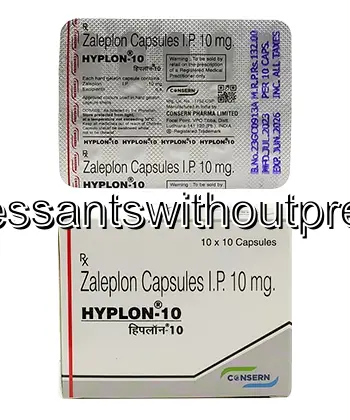Shop Zaleplon Online UK
| Package | Dosage | Price | Price per Dose | |
|---|---|---|---|---|
| Dosage: 10mg | ||||
| 200 pill | 10mg | £100.59 | £0.50 | |
| 100 pill | 10mg | £53.25 | £0.53 | |

Zaleplon Description
Overview of Zaleplon
Zaleplon is a prescription medication primarily used to treat insomnia, particularly difficulties with falling asleep. It belongs to a class of drugs known as sedative-hypnotics and functions as a non-benzodiazepine agent. Its chemical structure is designed to target specific receptors in the brain to promote sleep without causing prolonged sedation. Patients often choose Zaleplon because it works quickly and has a short duration of action, making it suitable for those who need help falling asleep but not staying asleep all night.
Effectiveness and Benefits
Many users find Zaleplon effective in reducing the time it takes to fall asleep, which can significantly improve overall sleep quality. Its rapid onset action typically begins within 15 to 30 minutes after ingestion, allowing individuals to fall asleep faster. The short half-life of about one hour means the medication clears from the system quickly, decreasing the likelihood of next-morning drowsiness or "hangover" effects. This characteristic makes Zaleplon a popular choice among patients who wake up early and need to wake refreshed.
Usage and Dosage
Zaleplon should always be used as prescribed by a healthcare provider. The typical dose ranges from 5 mg to 10 mg taken immediately before bedtime. It is important to take the medication on an empty stomach for optimal effectiveness. Patients are advised not to increase the dose without medical consultation due to potential side effects. Additionally, Zaleplon should be used only for short-term treatment, usually no longer than a few weeks, unless directed otherwise by a doctor. Proper usage and adherence to prescribed guidelines can help minimize risks and improve sleep outcomes.
Potential Side Effects and Risks
While Zaleplon is generally well-tolerated, some users may experience side effects. Common adverse reactions include dizziness, headache, drowsiness, and nausea. Less frequently, individuals may report feelings of confusion or agitation. It is important to avoid alcohol and other central nervous system depressants while taking Zaleplon, as they can enhance sedative effects and increase the risk of respiratory depression. Patients with a history of depression or suicidal tendencies should notify their healthcare provider before starting Zaleplon. Dependence and withdrawal symptoms are also possible if the medication is used long-term or abruptly discontinued after prolonged use.
Precautions and Interactions
Patients should inform their doctor about all medications they are taking, including over-the-counter drugs and herbal supplements. Certain medications, such as rifampin or other enzyme inducers, can decrease Zaleplon effectiveness. Conversely, drugs like ketoconazole or itraconazole may increase its sedative effects. It is important to discuss any existing health conditions with your healthcare provider, especially liver problems, as they may influence dosage or suitability. Ensuring proper sleep hygiene, such as maintaining regular sleep schedules and creating a comfortable sleep environment, can enhance treatment outcomes alongside medication use.
Conclusion
Zaleplon offers a rapid and effective solution for sleep initiation difficulties. Its short action profile allows users to fall asleep quickly without lingering sedation, making it a preferred choice for short-term management of insomnia. However, as with all medications, it requires careful adherence to dosing instructions and medical guidance. Monitoring for side effects and being aware of potential interactions helps ensure safe and efficient use. Consulting a healthcare professional before starting or stopping Zaleplon is essential for maintaining health and sleep quality.
